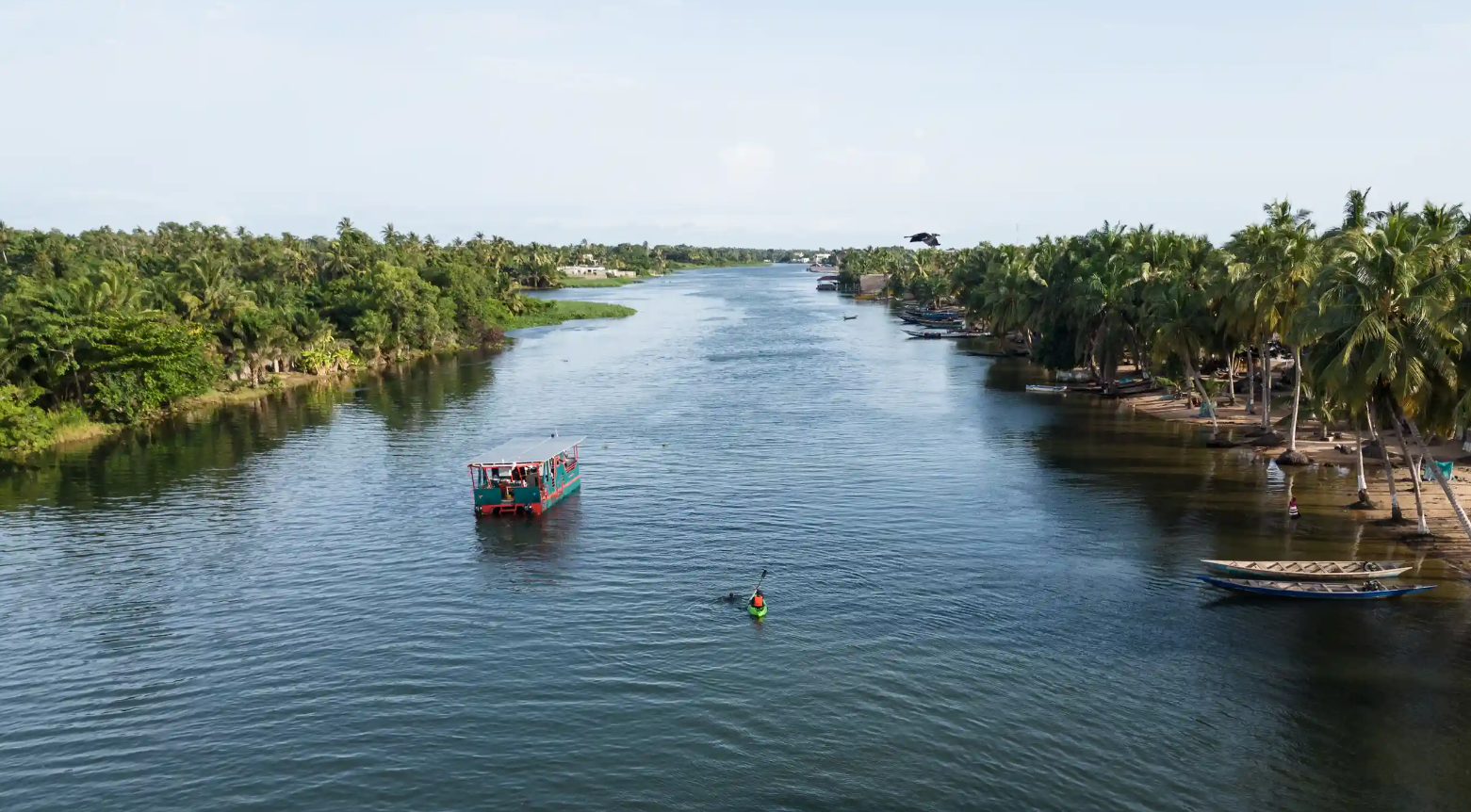‘It’s like a death pit’: how Ghana became fast fashion’s dumping ground. Yvette Yaa Konadu Tetteh’s epic swim down the River Volta highlights the damage done to the country’s waterways by an out-of-control trade in secondhand clothes from the global north, and why it’s time for change.
It’s mid-morning on a sunny day, and Yvette Yaa Konadu Tetteh’s arms and legs barely make a splash as she powers along the blue-green waters of the River Volta in Ghana. This is the last leg of a journey that has seen Tetteh cover 450km (280 miles) in 40 days to become the first person known to swim the length of the waterway.
It’s an epic mission, but with a purpose: to find out what’s in the water and raise awareness of pollution in Ghana.
As the 30-year-old swims, a crew shadows her on a solar-powered boat, named The Woman Who Does Not Fear, taking air and water samples along the way that will be analysed to measure pollution.
‘It’s like a death pit’: how Ghana became fast fashion’s dumping ground
It is hoped that the swim will draw attention to some of the pristine environments in Ghana, in contrast with places such as Korle Lagoon in the capital city of Accra, one of the most polluted water bodies on Earth.
“I want people to understand and appreciate the value we have here in Ghana,” says the British-Ghanaian agribusiness entrepreneur. “The only way I can swim is because the waters [of the Volta River] are hopefully clean. Korle Lagoon was once swimmable but now you wouldn’t want to touch any of it.”
The swim is supported by the Or Foundation, of which Tetteh is a board member, that campaigns against textile waste in Ghana, one cause of increasing water pollution in the country.
Ghana imports about 15m items of secondhand clothing each week, known locally as obroni wawu or “dead white man’s clothes”. In 2021, Ghana imported $214m (£171m) of used clothes, making it the world’s biggest importer.
Read more at theguardian.com
Photo: theguardian.com


Leave a Reply